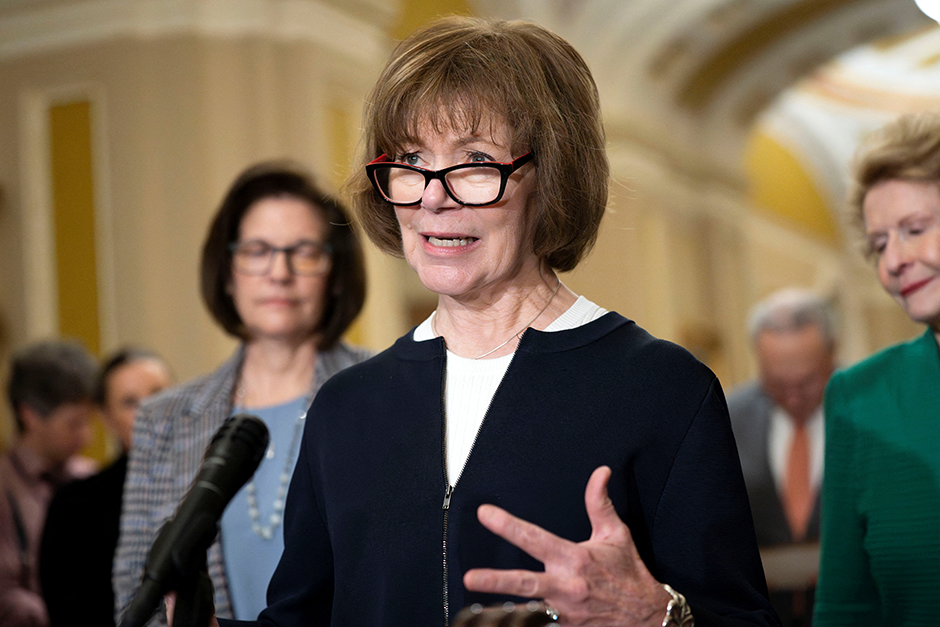WASHINGTON – The mayors of Minnesota’s two largest cities doubled down on their status as “sanctuary cities” in the wake of a judge’s ruling that will prevent the Trump administration from gutting their federal funds.
“What Donald Trump is trying to do is downright illegal,” Minneapolis Mayor Jacob Frey said in a statement. “Minneapolis is proud to stand with immigrant families — not just in words, but in court.”
Frey also said “we will not be bullied into violating the Constitution or compromising the trust between our residents and local government” and that no one in the city “should fear that seeking help or calling 911 could lead to deportation.”
Meanwhile, St. Paul Mayor Melvin Carter released a statement saying “this ruling affirms what we’ve always known: the President cannot force city employees to serve as ICE agents. … Our team will stay focused on our sacred responsibility — to provide exceptional public services for all of our residents.”
A federal judge in San Francisco issued the injunction Thursday at the request of 16 cities and counties — including Minneapolis and St. Paul — that will prevent the Trump administration from stripping funds from what it determines are “sanctuary” jurisdictions.
Attorney General Pam Bondi and Department of Homeland Security Secretary Kristi Noem have threatened the Twin Cities and all jurisdictions that limit the use of local resources to enforce federal immigration law with a cut-off of federal funds.
The lawsuit, initiated by the city of San Francisco, was filed after the Justice Department sued Illinois and the city of Chicago, seeking a court order to block laws that the Trump administration says are interfering with Trump’s efforts to deport millions of immigrants.
The Justice Department has also sued New York over a state law that bars the sharing of motor vehicle information — including addresses — with federal immigration authorities.
District Judge William Orrick cited those lawsuits as a reason the 16 jurisdictions that have sued have a strong reason to fear punitive actions from the Trump administration. Orrick wrote that the 16 jurisdictions “have established that they are likely to prevail on the merits of at least their separation of powers, Spending Clause, and Fifth and Tenth Amendment claims.”
In a statement, the Justice Department said that, despite the injunction, it “will continue to fight in court to defend President Trump’s agenda to crack down against policies that benefit criminal illegal aliens.”
Fighting for transgender athletes and against tariffs
Speaking of lawsuits, Minnesota Attorney General Keith Ellison continued to file them against the Trump administration this week.
Thanks to Ellison, Minnesota became the first state to sue the Justice Department over its threats to cut federal funding to states that allow transgender girls and women to participate on sports teams that correspond with their gender identity.
Ellison’s lawsuit said two of Trump’s executive orders — as well as threats and enforcement letters from the Justice Department — violated state sovereignty rights under the 10th Amendment, usurped the power of Congress and violated the Administrative Procedure Act.
It also said the administration has no legal right to rescind federal funding for allowing transgender women and girls to participate in sports teams that align with their gender identity.
The lawsuit was filed days after U.S. Attorney General Pam Bondi sued Maine over policies that allow some transgender athletes to compete in women’s sports and Bondi threatened to target Minnesota and California, as well.
Although most of Ellison’s other lawsuits against the Trump administration are multi-state efforts filed in federal district courts, Minnesota joined 13 other states in a lawsuit over Trump’s tariff policies that was filed in the U.S. Court of International Trade.
“Trump’s tariffs are unlawful and will cause severe harm to families across Minnesota, so I’m filing a lawsuit to block them,” Ellison said in a statement.
Trump said the levies would make the United States more self-reliant and regenerate the nation’s industrial base. But critics say the United States is too deeply immersed in a global economy and tariffs will hurt U.S. exporters and make the cost of thousands of imported goods Americans rely upon more expensive as other nations retaliate with their own tariffs.
The lawsuit filed by the Democratic attorneys general said only Congress has the power to impose tariffs and that the president, who invoked the International Emergency Economic Powers Act to impose the levies, can only do so when an emergency presents an “unusual and extraordinary threat” from abroad.
Trump has imposed 145% tariffs on exports from China and has put on hold smaller, but still sizable, tariffs on all U.S. trading partners, be they friend or foe.
The threat of a trade war with China and the chaos created by Trump’s “on again, off again” policy has roiled the stock market and has also reportedly already caused some disruption in supply chains of foreign goods.
Klobuchar moving up the ranks?
Senate Minority Whip Dick Durbin’s announcement that he will retire at the end of his term has touched off speculation about his replacement in the Senate Democratic leadership ranks and there’s talk that Sen. Amy Klobuchar may make a bid for that job.
Klobuchar currently holds the No. 3 position, that of chair of the influential Steering and Policy Committee, in the Democratic leadership. Durbin, who has long represented Illinois in the Senate, is No. 2. But Klobuchar would have competition if she wants to continue to climb the ladder. Sen. Brian Schatz, D-Hawaii, has signaled an interest in the post.
And Sens. Chris Murphy, D-Conn., and Cory Booker, D-N.J., may also go for the job.
Craig town halls rile up Republicans
Rep. Angie Craig’s decision to hold town halls in areas of the state that Trump won in the past election has really ticked off the GOP lawmakers who represent those congressional districts: Reps. Tom Emmer, Brad Finstad, Michelle Fischbach and Pete Stauber. So much so, they jointly filed an ethics complaint against Craig, alleging she has wrongly used her office account money to publicize the events. Craig says she used her campaign funds for the expenses of holding the town halls and office funds are often used to let constituents know about a lawmaker’s travels.
In any case, the House Ethics Committee will now begin a lengthy process of determining what to do about the complaint.
When a lawmaker (or in this case lawmakers) files a complaint against another member of Congress, the House Ethics Committee’s chairman and ranking member determine if the complaint meets technical, rule-based requirements. If not, the complaint is returned. If it does meet the requirements, the committee has 45 days to review the complaint, a time period that can be extended for another 45 days.
At the end of the 90-day period, the Ethics Committee either has to resolve the complaint or vote on whether to establish an investigative subcommittee that would continue to probe the issue. Most of those proceedings are confidential.
So, if the complaint meets the technical requirements, Emmer, Stauber, Fischbach and Finstad may be able to claim that Craig is under an ethics investigation for months, even if there’s a determination of no wrongdoing at the end.
Eying a run for retiring Sen. Tina Smith’s seat, Craig said she’s holding the in-person town halls because the GOP lawmakers won’t after their Republican colleagues faced angry constituents at those events.
The town halls also allow Craig to weigh how much DFL support she has in the “reddest” parts of the state.
In other news:
-We took a close look at the first 100 days of the Trump administration and their impact on Minnesota.
-Freelancer Forrest Peterson wrote about Craig’s townhall meeting in St. Cloud – the heart of Emmer’s district – and the ethics complaint filed by Republicans against her.
-From the state Capitol, Matt Blake reviewed Gov. Tim Walz’s State of the State address, including his criticism of the Trump administration for policies he said hurt the “federal government’s ability to help people.”
-In Community Voices, a college professor argues that Trump’s trade policies will lead to a “sudden stop” in the flow of capital into the country, which will make things more expensive for Minnesotans.
Your questions and comments
A reader was critical of a story about the impact of Trump policies on Minnesota in his first 100 days.
“You have identified all the things he has attempted,” the reader wrote. “The key word is ‘attempted.’ He is playing dictator or king, taking actions that would justify hundreds of impeachment charges. He signs an executive order and claims success. None of the massive resistance to his actions in the courts or around the country is mentioned, nor none of his bad appointments, his lies and vendettas, the failure to address inflation, much less the many ways he is increasing it, his withdrawal of foreign aid that is killing children as food rots in ware houses, foolishness such Gulf of America, etc. Maybe a companion article talking in dreadful details about all the damage he has done is needed?”
Whew. It’s true, many Trump initiatives have been blocked by lawsuits, but the impediments are temporary because most are injunctions and restraining orders. And other actions, including the increase in deportations, the chilling of dissent and the curtailment of government funds and the firing of government workers, have occurred already.
But yes, MinnPost will focus on Trump’s failings, too, which may be more evident in the next 100 days.
Please keep your comments, and any questions, coming. I’ll try my best to respond. Please contact me at aradelat@minnpost.com.
The post D.C. Memo: Twin Cities mayors stand firm as ‘sanctuary cities’ following court ruling appeared first on MinnPost.















































